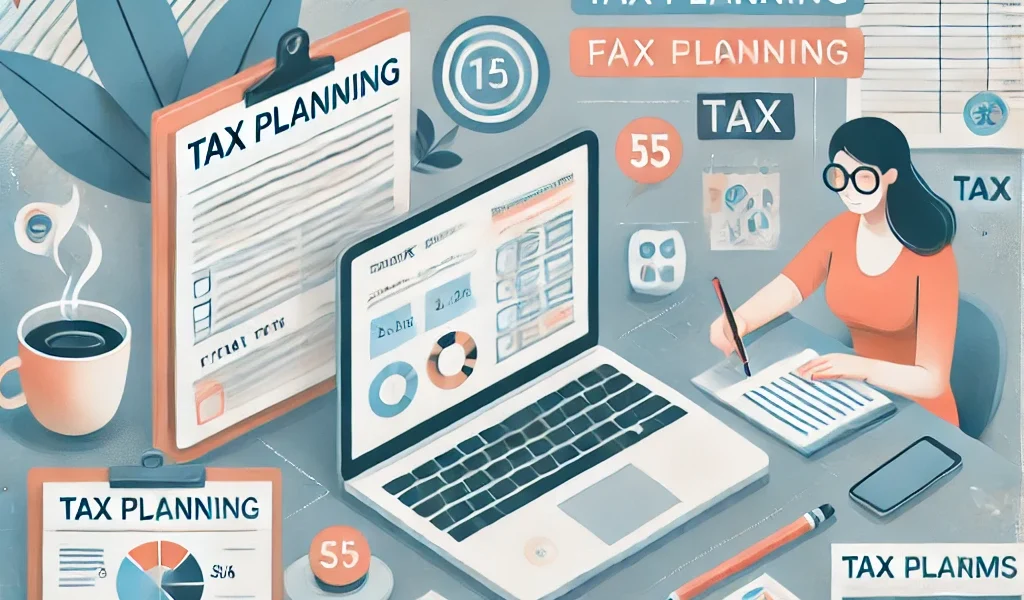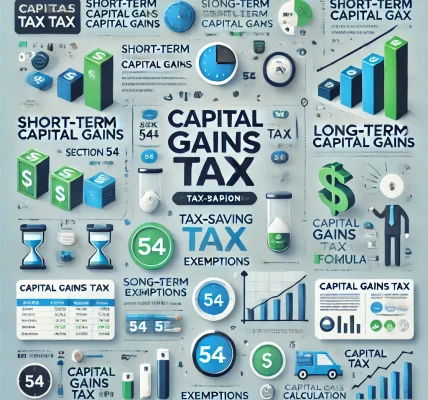The gig economy is booming, offering freelancers and independent contractors the freedom to work on their terms. However, this independence comes with tax responsibilities that differ significantly from traditional employment. Without proper tax planning, freelancers may face unexpected liabilities, penalties, or missed deductions that could save them money. This guide will provide essential tax tips to help freelancers and gig workers navigate tax season effectively and legally.
Understanding Taxes for Freelancers and Gig Workers
Unlike traditional employees who have taxes withheld from their paychecks, freelancers and gig workers must manage their own tax obligations. Here are the key components:
- Self-Employment Tax: Freelancers must pay both the employer and employee portion of Social Security and Medicare taxes, totaling 15.3%.
- Income Tax: You are responsible for federal and state income taxes, which depend on your total earnings.
- Quarterly Estimated Taxes: Since taxes aren’t withheld from payments, freelancers must make estimated tax payments four times a year to avoid penalties.
Essential Tax Planning Strategies
1. Track All Income Sources
Freelancers often work with multiple clients, and it’s crucial to keep a record of all income. This includes:
- 1099-NEC forms from clients (for payments over $600)
- Payments received via PayPal, Venmo, direct deposits, or checks
- Any bartered services or non-cash compensation
Using accounting software like QuickBooks, FreshBooks, or Wave can help track income efficiently.
2. Set Aside Money for Taxes
Since taxes aren’t deducted from freelance earnings, a good rule of thumb is to set aside 25% to 30% of your income for taxes. Keeping a separate savings account for taxes can prevent financial strain when tax payments are due.
3. Deduct Business Expenses
Freelancers can significantly lower their taxable income by claiming legitimate business expenses. Common deductions include:
- Home Office Deduction: If you use a dedicated space for work, you can deduct a portion of your rent or mortgage.
- Internet and Phone Bills: If used for business, a percentage of these bills is deductible.
- Equipment and Software: Computers, cameras, design software, and subscriptions like Adobe Creative Cloud or Zoom.
- Professional Services: Fees paid to accountants, tax preparers, or legal consultants.
- Marketing and Advertising: Website costs, social media ads, and promotional materials.
4. Understand Self-Employment Tax Deductions
Freelancers can deduct half of their self-employment tax when filing income taxes. This helps offset the additional tax burden of paying both employer and employee contributions to Social Security and Medicare.
5. Make Quarterly Estimated Tax Payments
To avoid underpayment penalties, freelancers must make estimated tax payments to the IRS on the following schedule:
- April 15 (for income earned January – March)
- June 15 (for income earned April – May)
- September 15 (for income earned June – August)
- January 15 (for income earned September – December)
Use IRS Form 1040-ES to calculate and submit payments. States may also require estimated tax payments.
6. Take Advantage of Retirement Accounts
Freelancers can save for retirement while reducing taxable income by contributing to tax-advantaged retirement accounts, such as:
- SEP IRA (Simplified Employee Pension IRA): Allows contributions of up to 25% of net earnings (maximum $69,000 in 2024).
- Solo 401(k): Offers higher contribution limits and tax benefits for self-employed individuals.
- Traditional or Roth IRA: Contributions may be tax-deductible, depending on income.
7. Keep Detailed Records for Audit Protection
Freelancers should maintain organized financial records for at least three years in case of an IRS audit. Keep:
- Receipts and invoices for business expenses
- Bank statements showing income and expenditures
- Tax return copies and payment records
8. Claim Health Insurance Deduction
Freelancers paying for their own health insurance can deduct premiums for:
- Medical, dental, and vision insurance
- Coverage for dependents and spouses
This deduction applies even if you don’t itemize deductions.
9. Use the Right Tax Forms
Freelancers typically file:
- Schedule C (Profit or Loss from Business) to report income and expenses.
- Schedule SE (Self-Employment Tax) to calculate Social Security and Medicare taxes.
- Form 1040 for overall tax filing.
10. Hire a Tax Professional if Needed
For complex tax situations, hiring a Certified Public Accountant (CPA) or tax professional can ensure compliance and maximize deductions. Many freelancers find that the tax savings outweigh the cost of professional assistance.
Bonus Tips for Reducing Tax Liability
- Structure Your Business as an LLC or S-Corp: This can provide tax benefits and liability protection.
- Time Your Income and Expenses: Deferring income to the next tax year or accelerating deductible expenses can lower taxable income.
- Consider State-Specific Deductions: Some states offer additional deductions for self-employed individuals.
Conclusion
Tax planning is essential for freelancers and gig workers to avoid surprises during tax season. By tracking income, maximizing deductions, making estimated payments, and utilizing tax-advantaged accounts, freelancers can minimize their tax burden while remaining compliant with IRS regulations.
Taking proactive steps today will ensure a smoother, stress-free tax experience and help freelancers keep more of their hard-earned money. If you’re unsure about your tax situation, consult a tax professional to develop a personalized strategy for success.




